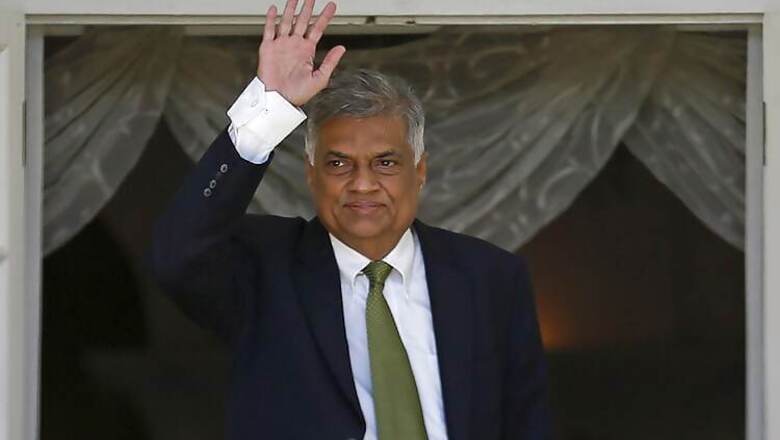
views
Colombo: Sri Lankan Prime Minister Ranil Wickremesinghe has asked South Asian nations to take advantage of opportunities that come with more open trade and asserted that a failure on this front has led to the region becoming home to nearly half of the world's poorest people.
Wickremesinghe said South Asia has been much slower to take advantage of the opportunities that can arise from more open trade and as a consequence the region is home to 44 per cent of the world's poorest people, the ColomboPage reported. The Sri Lankan premier said regional trade remains a key component of growth in China, Japan, South Korea, and the countries of Southeast Asia.
However, in South Asia intra-regional trade among SAARC countries accounts for just 5 percent of total trade, compared to 25 per cent for the Association of Southeast Asian Nations
(ASEAN).
In a post to Project Syndicate, the global op-ed publication, on "Trade in a Time of Protectionism", he stressed that the governments have an obligation to try to use trade to lift their people out of poverty.
"If trade is to become a key driver of growth in Sri Lanka or elsewhere in the region, we will most likely have to generate it ourselves - by transforming South Asia from one of the world's least economically integrated regions into one of its most integrated.
He said the open trade is under attack even in parts of Asia and in Sri Lanka, the "economic and technology agreement" that his government recently planned to sign with India, in order to bring about greater economic integration, has come under ferocious political attack.
According to Wickremesinghe, tariffs and other needless restrictions hobble trade among all South Asian countries but those obstacles were supposed to be swept away with the establishment of the South Asian Association for Regional Cooperation, the largest of all the world's regional trading blocs, with close to two billion people.
But SAARC's reliance on bilateral negotiations has slowed the process to a crawl, keeping the region much poorer than it needs to be.
"If SAARC is to succeed, a new multilateral mechanism for cooperation will be needed," he emphasized.
"The political obstacles to effective action will be stiff. Indeed, there is political opposition to greater regional economic integration in every SAARC country. But the scale of the challenges facing the region should impel all of SAARC's members toward greater cooperation," the Sri Lankan leader said urging the SAARC's member governments to rise to the challenge.
"It is time for SAARC's member governments to rise to the challenge. By working together, we can lay the foundations of a regional economy as dynamic as that of our neighbors to the east."




















Comments
0 comment